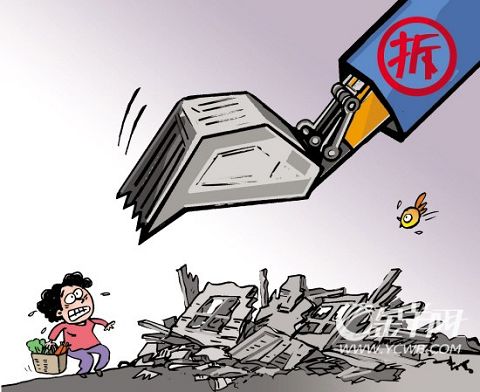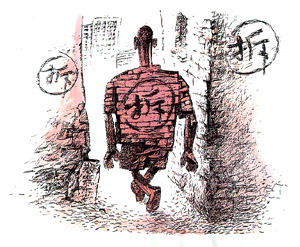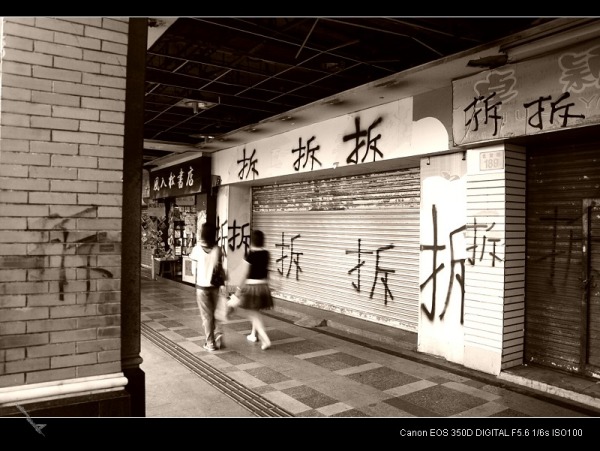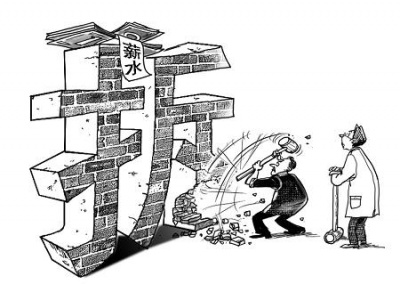“Demolish it”的版本间的差异
来自China Digital Space
| 第3行: | 第3行: | ||
This sounds the same in Chinese (''chāi na'') as the English pronunciation of China. The first character means “demolish” and has a special meaning in China. Housing demolitions, with little or no compensation, are one of the major sources of social instability in China. People become upset not only because of the low compensation but because they see their homes sold to developers in a transaction in which the developers and the government profit greatly but the original owners lose out. The second character means "where or which." Hence, "''chāi nǎ''" also sounds like the question, "Demolish where?" and mocks the ubiquity of demolitions. | This sounds the same in Chinese (''chāi na'') as the English pronunciation of China. The first character means “demolish” and has a special meaning in China. Housing demolitions, with little or no compensation, are one of the major sources of social instability in China. People become upset not only because of the low compensation but because they see their homes sold to developers in a transaction in which the developers and the government profit greatly but the original owners lose out. The second character means "where or which." Hence, "''chāi nǎ''" also sounds like the question, "Demolish where?" and mocks the ubiquity of demolitions. | ||
| − | Frequently in China one sees spray painted on sides of buildings the character “拆” which means that the building is slated for demolition. People who have had their homes demolished are called 拆迁户. | + | Frequently in China one sees spray-painted on sides of buildings the character “拆” which means that the building is slated for demolition. People who have had their homes demolished are called 拆迁户. |
Read more on this topic on China Digital Times as [http://chinadigitaltimes.net/china/building-demolition/ here], [http://chinadigitaltimes.net/china/destruction-of-old-cities/ here] and [http://chinadigitaltimes.net/china/forced-evictions/ here]. | Read more on this topic on China Digital Times as [http://chinadigitaltimes.net/china/building-demolition/ here], [http://chinadigitaltimes.net/china/destruction-of-old-cities/ here] and [http://chinadigitaltimes.net/china/forced-evictions/ here]. | ||
2010年12月11日 (六) 05:16的版本
拆哪 (chāi nǎ) demolish it.
This sounds the same in Chinese (chāi na) as the English pronunciation of China. The first character means “demolish” and has a special meaning in China. Housing demolitions, with little or no compensation, are one of the major sources of social instability in China. People become upset not only because of the low compensation but because they see their homes sold to developers in a transaction in which the developers and the government profit greatly but the original owners lose out. The second character means "where or which." Hence, "chāi nǎ" also sounds like the question, "Demolish where?" and mocks the ubiquity of demolitions.
Frequently in China one sees spray-painted on sides of buildings the character “拆” which means that the building is slated for demolition. People who have had their homes demolished are called 拆迁户.
Read more on this topic on China Digital Times as here, here and here.










